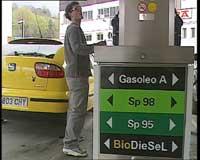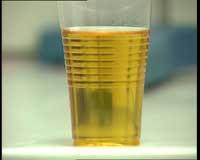Biodiesel, please

At the moment it can be found in three gas stations in the Basque Country: Bilbao, Vitoria-Gasteiz and Andoain. These petrol stations can contain 15% biodiesel and 85% oil mixture. The mixture, called Bionor Mx-15, has the same cost as diesel and can be used in all types of diesel engines. Produced by Bionor Transformation, an annual production of 30,000 tons is expected. The company is formed by the AZTI Foundation, the Basque Energy Agency and other small entrepreneurs in the sector.
Compared to conventional diesel, biodiesel combustion has a lower environmental impact. Miguel Ángel García, general manager of Bionor, says that sulfur oxides are not emitted from the car's exhaust and that soot is reduced by approximately 55%. In addition, the body odor that sometimes has diesel
disappears with biodiesel. And finally, lubricate and clean the bio motor
diesel, with great cleaning power. It can therefore be said to extend the life of the engine and reduce maintenance costs."It must also be taken into account that biodiesel is considered a renewable fuel, since burning in the car closes somehow the carbon cycle that had begun to grow the plant. That is, the amount of CO 2 absorbed by the atmosphere for plant growth is reversed to the atmosphere by burning it, so the total balance is considered zero. In the case of diesel, being a fuel fossil, this equation is not met. That's why it's better than conventional diesel, even if it's not perfect.
It should be noted, however, that all the benefits mentioned correspond to 100% biodiesel fuel and not to the mixture that is currently sold, since 85%
of the mixture is traditional diesel.
Cooking to fuel tank

The first work for the production of biodiesel is the collection of raw material, ie vegetable oil. Rafrinor and Ecogras are the companies responsible for collecting oil, which is carried out in 1,500 restaurants in Bizkaia, Araba and Cantabria. In addition, seven municipalities have been launched. Biodiesel can be made with vegetable oil, both virgin and used.
Once the oil is collected, the first task is to remove the solids and excess water, to later transform the oil into glycerin and methyl esters, that is, to produce biodiesel. For an appropriate reaction to occur, it is important to accurately measure the proportion of each component. Luis Ferreiro, manager of Bionor believes that the raw material is not very regular. "The process is well known in the bibliography; it is a transesterification, it is a vulgar word. But it is simply adding a reagent, in this case adding alcohol to the oil; the reaction is very fast, it is finished in an hour and in the end we get two phases: an organic, a mixture of methyl esters, biodiesel, and another aqueous, glycerol". Finally, these phases are separated and biodiesel is cleaned and dried. And once proven to meet all requirements, it mixes with conventional diesel and takes the fuel to the gas station to make it available to the customer.
Buletina
Bidali zure helbide elektronikoa eta jaso asteroko buletina zure sarrera-ontzian











